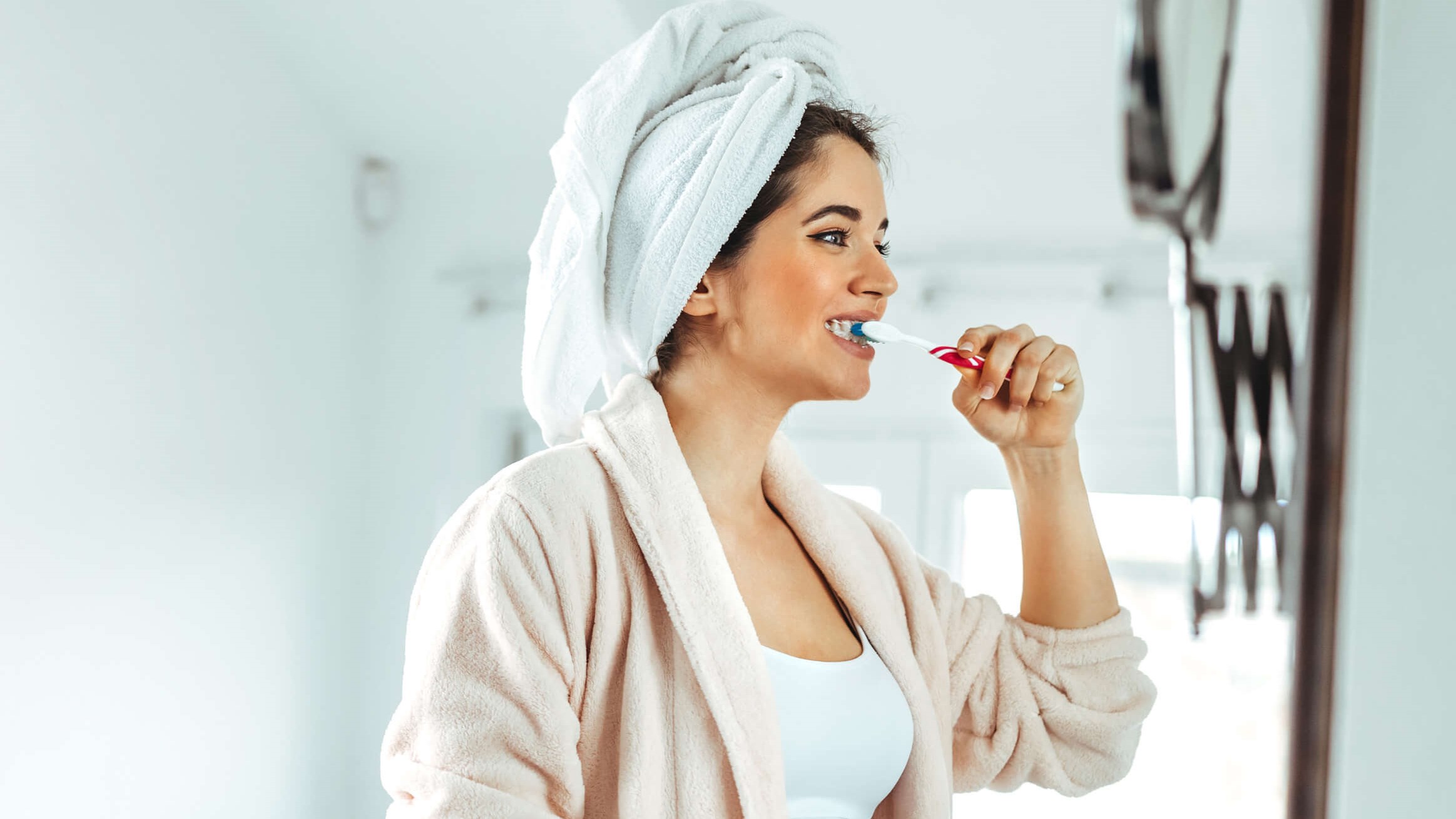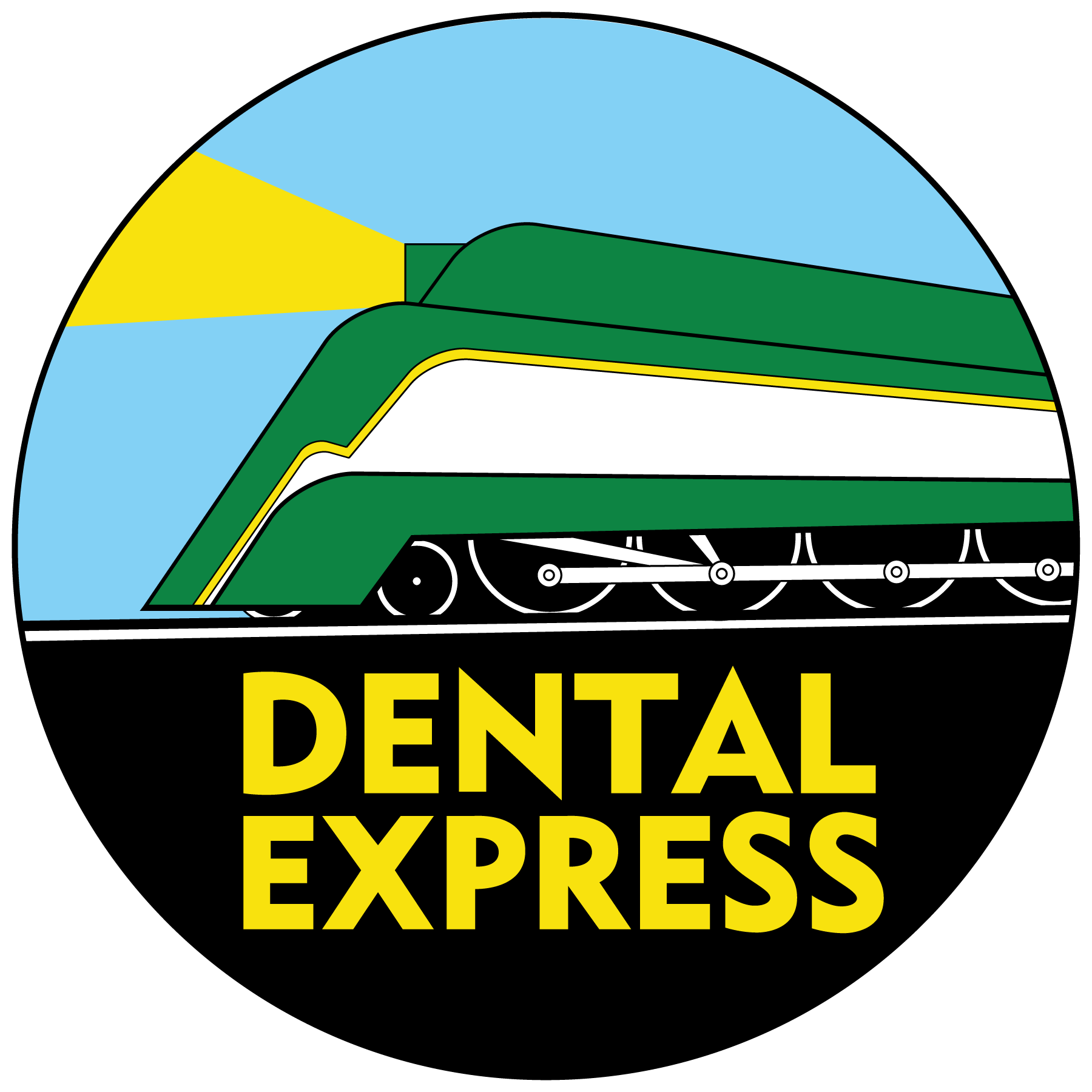&srotate=0)
Learn the Correct Way to Brush Your Teeth
To maintain the best possible oral health, closely follow a regular at-home oral hygiene routine. Your oral health can drastically impact your overall health. At Dental Express in San Diego, CA, our professional team teaches our patients some of the best oral hygiene tips to keep their teeth and gums healthy. While maintaining a regular routine of comprehensive dental exams and routine dental cleanings are important, learning the best way to brush your teeth helps prevent dental pain and discomfort in the future.
Should I floss or brush my teeth first?
Whether you floss or brush first isn’t an important detail to a successful oral hygiene routine. What matters most is that you both brush and floss regularly. Flossing first helps to loosen plaque between the teeth. It removes food particles and debris from between the teeth in the tiny spaces that the toothbrush cannot touch.
When you eliminate plaque that causes tooth decay, your oral health will benefit. It’s important to focus more on the quality of cleaning your teeth and gums. While brushing your teeth removes plaque from the surface of the teeth, it cannot eliminate it entirely, which makes flossing important. Ultimately, the order in which you brush and floss is up to you; the focus should be getting your teeth and gums as clean as possible.
How to brush your teeth
The American Dental Association suggests brushing your teeth at least twice daily. Replace your toothbrush every few months or when the bristles start to fray. Use an ADA-accepted fluoride toothpaste. Place your toothbrush at a 45-degree angle focused on the gums. Gently move the toothbrush back and forth to brush the inner, outer, and chewing sides of your teeth. Brush each of the four quadrants of the mouth for at least 30 seconds. Also, don’t forget to brush your teeth, which harbor harmful bacteria that can lead to tooth decay.
How not to brush your teeth
There are many ways that you can incorrectly brush your teeth, including:
-
Choosing the wrong brush: Always use a brush with soft bristles that can bend. Also, a small-headed brush is advisable as it allows you to get to hard-to-reach areas easier.
-
Brushing too hard: Don’t scrub the teeth too hard. This can lead to red and swollen gums. Plaque is soft, so you don’t need to scrub to remove it.
-
Not brushing long enough: You should brush for at least two minutes every time you brush.
-
Brushing incorrectly: Don’t brush back and forth. Start at the gums and go up and down in a circular motion to brush correctly.
-
Forgetting the gumline: Bacteria remains where the tooth meets the gum. Don’t miss that area or you will increase your risk of tooth decay and periodontal disease.
-
Brushing right after a meal: Dental professionals suggest waiting for at least 15 or 20 minutes after a meal before you brush. This is because the acid is still sitting in your mouth and you’re now using an abrasive that can erode your teeth.
What does flossing do for your health?
Flossing helps reduce your chances of developing periodontal disease. This gum inflammation occurs when bacteria below the gumline is left in your mouth. Gum disease is associated with many medical conditions, including stroke, heart disease, rheumatoid arthritis, and Type II diabetes. Regular dental examinations and routine dental cleanings at Dental Express in San Diego, CA help to effectively remove plaque.
Learn how healthy teeth and gums keep your oral health at its best
At Dental Express in San Diego, CA, we teach our patients tips on maintaining their oral health at home. Oral care tips help you to understand how brushing teeth and flossing can help you keep optimal oral health. When you leave bacteria, food particles, or plaque on your teeth or in the gums, gingivitis can develop. Flossing helps reduce this risk. Our goal is to help all our patients achieve healthy teeth with an efficient at-home oral hygiene routine. To schedule an appointment to learn tips for healthy teeth and gums, call us today.

